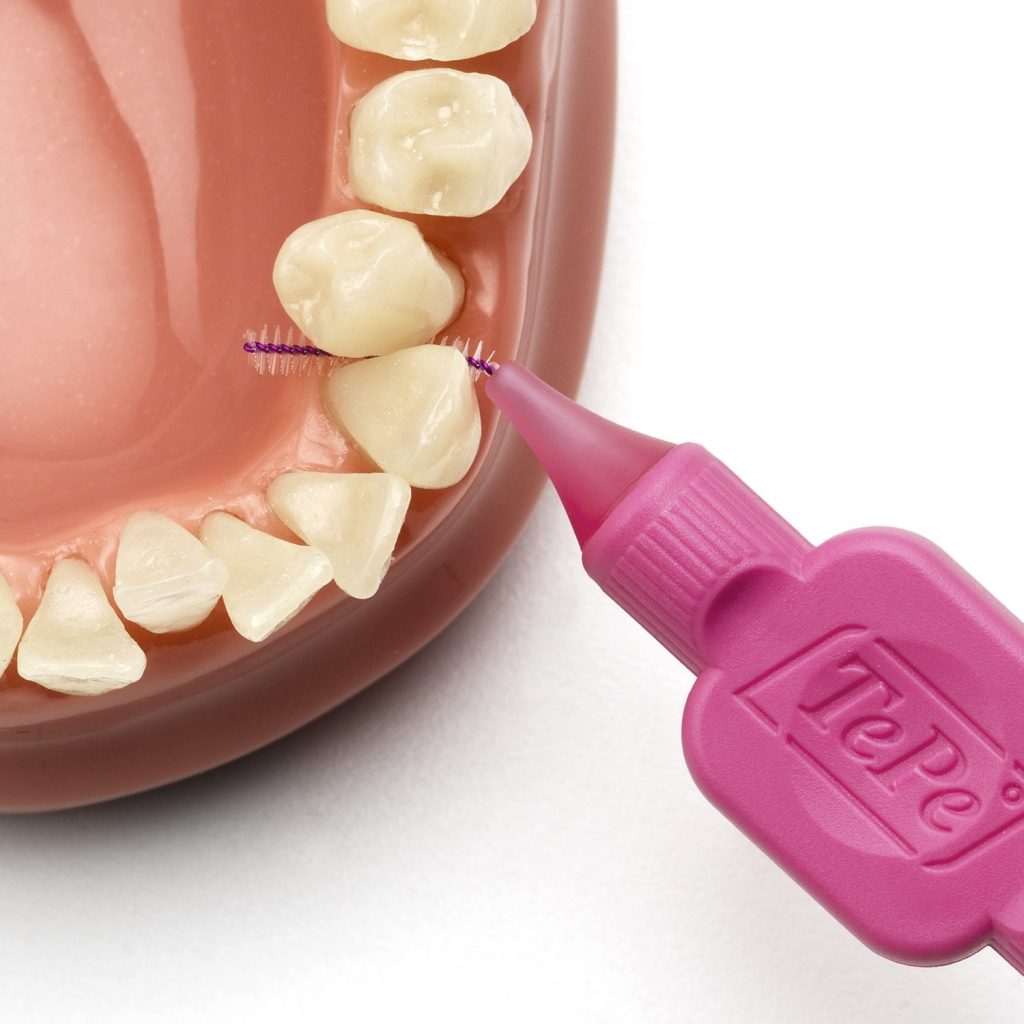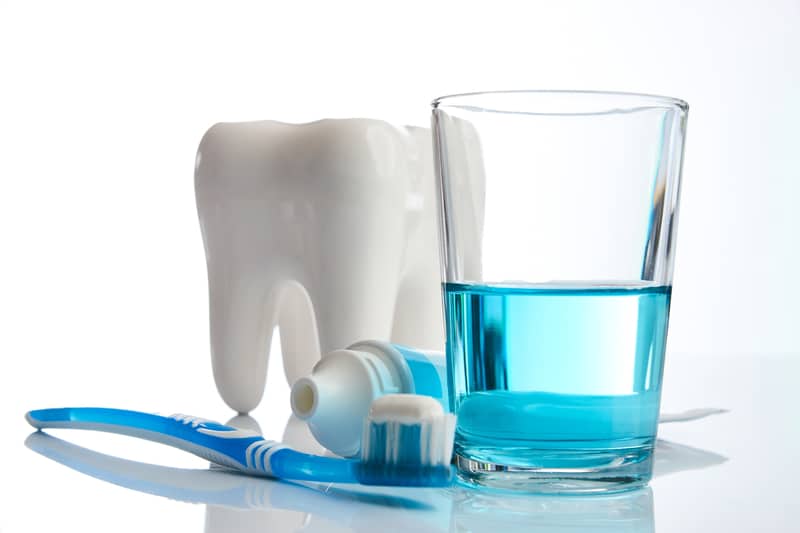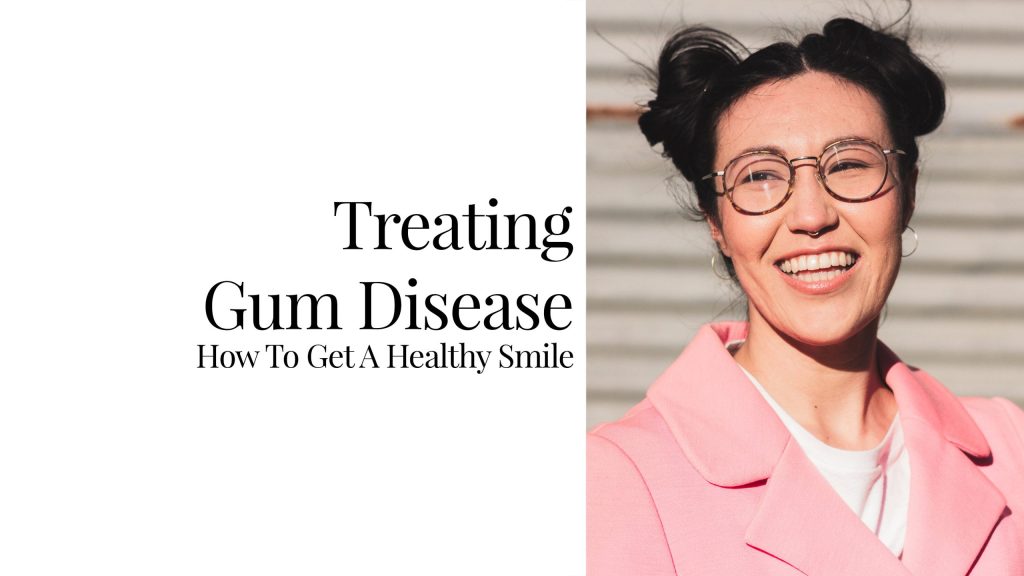At Space Dental we are ambassadors for treating the whole mouth, including preserving the health of your teeth and gums. Prior to any cosmetic treatment, we ensure that the teeth and gums are healthy all our patients no matter the treatment have to receive the all-clear from our dental hygiene therapists to say that they are suitable for treatment and that their gums and teeth are in a healthy state
Stages of Gum Disease

There are four stages of gum disease
1. Gingivitis: Gingivitis is a common and mild form of gum disease (periodontal disease) that causes irritation, redness and swelling (inflammation) of your gingiva (the part of your gum around the base of your teeth).
2. Mild Periodontal Disease: Mild periodontal disease is the second stage of gum disease. Once you reach stage two, the infection has spread to the bone and has begun to destroy bones. The bacteria have become more aggressive, which is what leads to bone less.
3. Moderate Periodontal Disease: The third stage of periodontal disease has more probing depths, which allows for even more bacteria to attack the bones and the bloodstream, too. Much like slight periodontal disease, our professional specialists will use scaling and root planning to thoroughly clean the area.
4. Severe Periodontal Disease: By the time Stage 4 is reached, people are often already missing several teeth, and the ones that remain are often loose.
What Causes Gum Disease | My Gums to Bleed?
Poor oral hygiene is the main cause of gum disease, as it can create a build-up of plaque on your teeth.
Plaque is formed from the bacteria and saliva in your mouth. It can break down the surface of your teeth, while other bacteria may irritate and cause inflamed, sore gums – a sign of gum disease.
Without regularly or properly brushing and flossing your teeth, plaque can build up and turn into tartar.
To Avoid Gum Disease You Need To Brush 2 Time A Day For 2 Minutes and Clean In-between Your Teeth

Gum disease is a common condition identified by sore, swollen, or infected gums. As you brush your teeth you may experience bleeding or painful gums. The early stage of gum disease is called gingivitis, which if left untreated can develop into periodontitis. Here are some reasons why your gums are bleeding:
- Not Brushing Your Teeth – Everyone should brush their teeth twice a day for 2 minutes, as well as floss using interdental brushes.
- Vitamin deficiencies – Low levels of vitamin C and K could cause gums to bleed easily.
- Bleeding disorders – People who suffer from conditions such as haemophilia and leukaemia can be more likely to experience bleeding gums.
- Pregnancy – Hormonal changes during pregnancy may cause your gums to be more sensitive, which can lead to bleeding.
- Dentures – Do you wear dentures and experience bleeding gums? It could be a sign they’re too tight.
- Brushing too hard – Brushing your teeth too vigorously, either in the morning or at night, can lead to sore gums that may start to bleed.
- Medication – Certain medications, such as antihistamines and antidepressants, may reduce the flow of saliva. As saliva protects your teeth and gums, this can negatively affect your oral health.
- Diabetes – High blood sugar levels can affect your gum health.
- Malnutrition – Lacking nutrients such as vitamin B and C in your diet may lead to swollen gums and gum disease.
- Weakened immune system – Infections, conditions and treatments (such as chemotherapy) that weaken your immune system can make it easier for gum disease to thrive.
- Age – As you get older, you’re more likely to experience gum disease.
- Smoking (or vaping) – Smoking can weaken your immune system and make it harder for gum disease treatments to work.
SPACE DENTAL TIP:
Check Your Toothpaste!
Toothpastes containing 1,350ppm to 1,500ppm fluoride are the most effective.

Can Gum Disease be Treated?
Gum disease can be treated depending on what stage of gum disease your teeth and gums are at. If you suspect that you have gum disease or have any of the following symptoms book an appointment to see one of our hygiene therapists who can create a personalised treatment plan for your to get your gum disease under control.
How is Gum Disease Treated?
Periodontitis can be treated at its early stage – When gingivitis turns to periodontitis, there are non-surgical and surgical procedures used to cure the problem. At its earliest stage, a ‘deep cleaning’ may be enough to cure it. Non-invasive laser therapy can also be used to treat gum pockets.
Here at Space Dental, we have a team of amazing Hygiene Therapists. Our lead Hygiene Therapist studied at Harley Street in London and has a particular interest in periodontal treatment. All our hygiene appointments are a minimum of 60 minutes long and use multiple treatments to ensure that the teeth and gums are clean – this is no normal scale and polish, this is a Space Dental Gum and Teeth Conditioning Appointment.
Should I Use Mouthwash At The Same Time As Brushing?
No, the NHS recommends that you don’t use mouthwash at the same time as brushing. Use it at an alternative time, because it washes away the fluoride in the toothpaste. For more information on the NHS and their Fluoride advice please click here:
What is Better – Dental Floss or Interdental Brushes?
This debate has been ongoing since the development of interdental brushes in a study dentists noticed that patients who were advised to use interdental brushes, come to the next visit with cleaner teeth and gums! Those who were advised to floss mostly still came back with gingivitis.
Interdental brushes are:
• More effective at removing food particles and bacteria from between teeth
• Easier to use, especially for people with limited hand and finger dexterity
• Effective for navigating between braces and wires
• More expensive than floss
Dental floss is:
• Less expensive
• Good for fitting very tight spaces, but also can tear coming out of tight spaces
• Time-consuming to clean every tooth correctly
• More difficult to use to clean teeth with braces
The British Society of Periodontology has been quoted to saying:
“Evidence supports the use of small interdental brushes for cleaning between the teeth where there is space to do so, in preference to flossing… Floss is not a waste of time – it is a viable alternative to interdental brushing where appropriate.”





